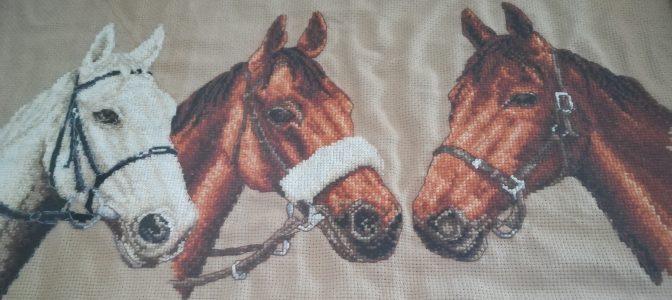What can one say: it wasn’t exactly the race we wanted to see, nor indeed the race the industry needed at a time of great scrutiny. It would be fair to say, sadly, that the 2023 Grand National day may be one of those remembered in the public consciousness more for the surrounding events than the race itself.
I’ve held off writing about it in order to get my thoughts in order, as last week I was fairly furious about the actions of Animal Rising, an activist movement dedicated to disruptive events in the name of animal rights. Despite being formed in 2019, they seem only now to be acting – and as with so many similar groups, the shouting has been localised to the biggest event in the horse racing calendar. Naturally, it makes sense to make more of a scene at an event where the publicity will be the greatest, but the last time I checked there are nearly 1,500 horse racing fixtures in Britain this year. Animal Rising is yet to show up at Bangor-on-Dee on a rainy Thursday afternoon, as far as I am aware.
Conversely, the stable staff, trainers and owners of racehorses provide the animals with unconditional love, top-notch care and complete respect, 24 hours a day, seven days a week, 365 days a year. Last Saturday, as over one hundred activists created havoc outside Aintree and nine got onto the Grand National course itself, the people working with the horses had one concern: the safety and mental wellbeing of the animals.
Racehorses are high-performing athletes. As they were saddled up and led into the parade ring, they would have been well aware that they were about to race. The 14-minute delay to the race left them unsettled and out of their routine, which could not have been more evident in the start – three attempts to get lined up, followed by a complete rush at the first fence, where five horses fell or unseated their rider.
Devastatingly for all connections, the fall proved fatal for Hill Sixteen. Trainer Sandy Thomson has not minced his words about where he lays the blame. Noting that Hill Sixteen had not fallen once in four years, Thomson cited the “chaos” the protestors had caused and said that the horses were getting “worked up and hyper” as they were forced to skip the parade that would have given them essential time to acclimatise to the crowd and noise. He told the BBC “there’s no doubt in my mind that the chaos contributed to [Hill Sixteen’s] death”.
These strong and heartfelt words, spoken by an expert, weren’t enough. Only a week later, Animal Rising attempted exactly the same stunt at Ayr’s Scottish Grand National, albeit with even less success at preventing the race. It followed a week of rambling interviews, where the group’s spokespeople have failed to set out what precisely their plans are for the many thousands of racehorses in the UK should racing be banned, and during which they have repeatedly cited spurious ‘facts’ and ‘statistics’.
The Scottish Grand National stunt in particular surely shows that the group is not prepared to enter into any meaningful dialogue with the industry or engage with education on a sport about which they remain woefully ignorant.
Despite the activists’ reticence towards listening (and, indeed, facts), the world of horse racing remains committed to evolving to survive. The British Horseracing Authority (BHA) has stated that it will be working with Aintree to analyse the Grand National in detail in order to understand what caused the death of Hill Sixteen. The industry, as ever, has already started debating whether further changes to the Grand National could make the race as safe as is possible. From fences to runners, the conversation remains open to ensure that horse welfare is the priority.
Above all, let us not take away from the performances those wonderful animals gave us last week and yesterday. Corach Rambler’s Grand National victory, only weeks after his second consecutive Cheltenham Festival win, was a huge thrill for trainer Lucinda Russell and all Scottish racing fans. It was the culmination of a brilliant racing festival that also saw Shishkin and Constitution Hill triumph in the Aintree Bowl and Aintree Hurdle respectively.
And the Scottish Grand National was hugely emotional, as seven year-old Kitty’s Light won for trainer Christian Williams. Williams’ five-year-old daughter was recently diagnosed with leukaemia, and he said after the race that it would greatly cheer the family and be a huge tonic to his children.
It’s a reminder that, to those involved in racing, horses are really part of the family: loved, valued and extremely important. After last weekend, many trainers have said their yards are open to showcase exactly that to anyone who may have their doubts about welfare in the horse racing industry. It remains to be seen if any of the activists are truly engaged enough with animal welfare to halt the stunts and take the yards up on those offers.

7 thoughts on “Grand National(s) 2023: Disruption and drama”